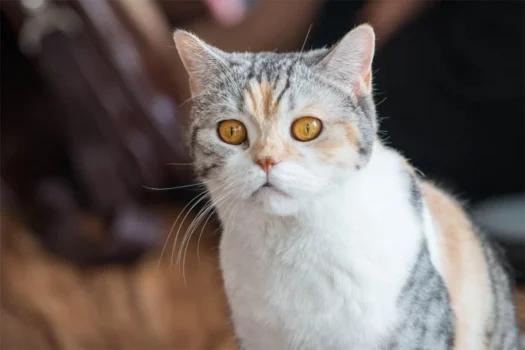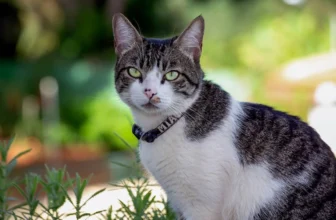Consider this scenario: you have been breeding American Wirehairs for some time and you love the breed. You know that they are generally healthy cats, but you have heard of some genetic problems that can affect them. The thought of passing on genetic disorders to future litters is a concern that you cannot ignore. How can you ensure that your breeding program produces healthy cats? The answer is genetic testing. Implementing genetic testing in your breeding program can help you identify any existing health issues and prevent future problems. In this article, we will explore the importance of genetic testing in breeding American Wirehairs, including the basics of American Wirehair genetics, the benefits of genetic testing, the different types of genetic tests available, and how to implement genetic testing in your breeding program.
The Basics of American Wirehair Genetics
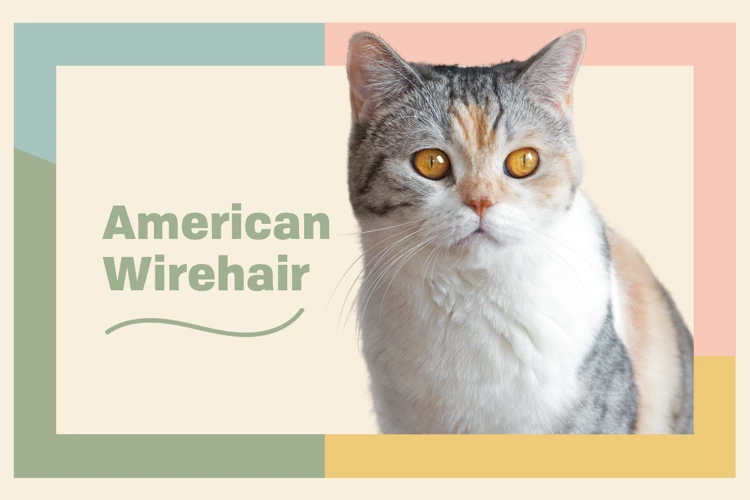
Genetics plays a crucial role in the breeding of American Wirehairs. Breeders need to understand the basic principles of cat genetics to make informed breeding decisions that will produce healthy and thriving cats. Knowing about the genetics of American Wirehairs is critical in understanding how traits are passed from one generation to the next, and how genetic testing can be used to prevent the transmission of genetic disorders in breeding programs. In this section, we will explore the fundamental principles of American Wirehair genetics, including the inheritability of genetic disorders in Wirehairs, and the prevalence of genetic conditions in American Wirehairs. By understanding these basics, breeders can make better-informed decisions when it comes to breeding their cats.
The Inheritability of Genetic Disorders in Wirehairs
Genetic disorders are a significant concern for American Wirehair breeders. Certain medical conditions can be inherent and passed down from parent to offspring. Some of these disorders include heart disease, eye conditions, and kidney problems. While not all American Wirehairs will develop genetic disorders, there is a risk of inheritance.
To better understand the inheritability of genetic disorders in American Wirehairs, a breeder must be knowledgeable about the basics of feline genetics. A cat’s DNA is made up of pairs of genes, which are inherited from their parents. Sometimes, mutations or changes occur within these genes that lead to genetic disorders.
One of the most common ways to predict whether a cat will develop a certain genetic disorder is through pedigree analysis, which examines the cat’s ancestry. In general, if more than one close relative (e.g. parents, siblings) have a specific condition, the likelihood of an American Wirehair offspring developing the disorder increases. This is why it is essential for breeders to maintain detailed records of their American Wirehairs’ pedigrees.
It is important for breeders to be aware of the potential genetic disorders that are common in American Wirehairs. According to recent studies, Polycystic Kidney Disease (PKD) is one of the most prevalent genetic conditions in American Wirehairs, with up to 50% of the breed being affected.
In addition to PKD, the breed is also susceptible to Feline Hypertrophic Cardiomyopathy (HCM), which is a progressive heart disease. HCM can be difficult to detect because symptoms may not appear until later in life. It is crucial for American Wirehair breeders to conduct regular screening tests and genetic screening to detect potential issues as early as possible.
By understanding the risks of genetic disorders and implementing pre-breeding health tests, breeding pairs can be carefully selected to minimize the chances of offspring inheriting common genetic conditions. With careful breeding, the chances of producing healthy American Wirehairs are significantly increased.
To learn more about pre-breeding health tests and American Wirehair breeding pair tips, visit our article on American Wirehair Breeding Pair Tips.
The Prevalence of Genetic Conditions in American Wirehairs
The American Wirehair is a relatively healthy breed of cat, but like all animals, they are susceptible to certain genetic conditions. Several inherited diseases have been reported in the American Wirehair population, including hip dysplasia and hypertrophic cardiomyopathy (HCM).
Hip dysplasia is a condition where the hip socket doesn’t form correctly, which can cause pain, lameness, and arthritis. It is a fairly common condition in American Wirehairs and can be tested for by a veterinarian using X-rays.
Hypertrophic cardiomyopathy is a genetic heart condition that can result in heart failure in cats. It is one of the most commonly reported genetic conditions in all cat breeds, including American Wirehairs. Early detection and management can be key to preventing sudden cardiac death in affected cats.
Other genetic conditions that have been seen in American Wirehairs include polycystic kidney disease (PKD), which causes cysts to form in the kidneys and can lead to renal failure, and glycogen storage disease type IV (GSD IV), which affects metabolism and can cause weakness, tremors, and even sudden death.
Fortunately, genetic testing can help identify carriers of these diseases, allowing breeders to make informed decisions when selecting cats for breeding. With responsible breeding practices that prioritize the health and well-being of the cats, the prevalence of these conditions can be minimized over time.
It’s important to note that not all American Wirehairs will develop these conditions, and not all breeders test their cats prior to breeding. However, by working with reputable breeders who prioritize pre-breeding health tests and responsible breeding practices, you can increase the likelihood of bringing home a healthy, happy cat.
The Benefits of Genetic Testing
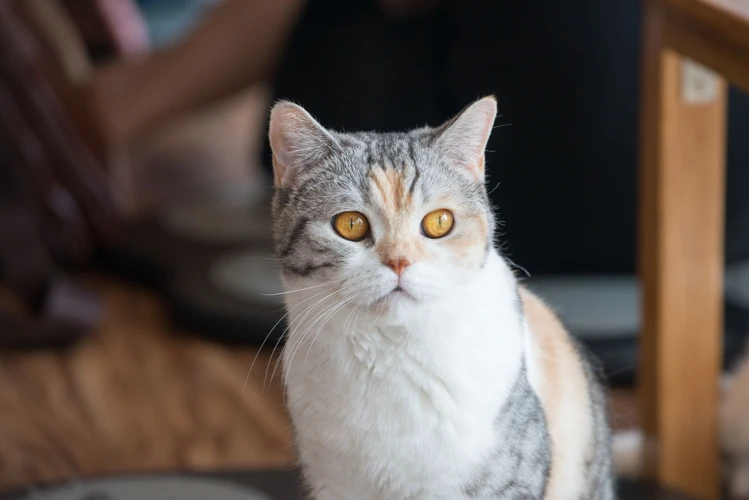
Genetic testing has become increasingly crucial in animal breeding programs, especially for American Wirehairs. Understanding the genetic makeup of wirehairs can provide breeders with valuable insight into potential health issues and ways to improve the breed. Genetic testing allows breeders to make more informed decisions when selecting parent cats, ultimately leading to healthier litters and a more robust feline population. In this section, we’ll explore the benefits of genetic testing in-depth and how it impacts the breeding of American Wirehairs.
How Genetic Testing Can Help Breeders Make Informed Decisions
Genetic testing is a powerful tool that can help breeders make informed decisions about breeding American Wirehairs. With genetic testing, breeders can determine if a cat carries certain genetic traits or conditions that could affect their offspring. By doing so, breeders can make more informed decisions about which cats to breed and which cats to avoid breeding.
Here are some ways in which genetic testing can help breeders:
- Identify cats that are carriers of genetic disorders: Genetic testing can determine if a cat is a carrier of a genetic disorder, which means they possess the gene for the disorder but do not show any symptoms. Breeders can use this information to avoid breeding cats that are carriers of the disorder or breed them only to cats that have tested negative for the gene.
- Prevent the occurrence of genetic disorders: By identifying cats that are carriers of genetic disorders, breeders can avoid the breeding of two cats that are carriers of the same disorder. This is important because when two carriers are bred, each kitten has a 25% chance of inheriting two copies of the faulty gene, which can cause the disorder.
- Select cats with desirable traits: Genetic testing can also be used to identify cats that possess desirable traits, such as a specific coat texture or color. By selecting cats that possess these traits, breeders can improve the quality of their breeding program and produce kittens that adhere more closely to the breed standard.
Genetic testing provides breeders with valuable information that can help them make more informed decisions about their breeding program. However, genetic testing should be used in conjunction with other breeding strategies, such as inbreeding or linebreeding, pre-breeding health tests, and early socialization of kittens. These strategies, when used together, can help breeders produce healthier, happier, and more desirable American Wirehair kittens.
How Genetic Testing Can Prevent Future Health Problems
Genetic testing can be an essential tool for preventing future health problems in American Wirehairs. By identifying potential genetic disorders early on, breeders can make informed decisions about which cats to breed and which to remove from their breeding program. This helps ensure that future generations of American Wirehairs are healthy and free from inherited diseases.
Here are some ways genetic testing can prevent future health problems:
- Identifying carriers: Genetic testing can identify cats that are carriers of certain genetic disorders, even if they may not show any symptoms of the disease. By identifying carriers early on, breeders can make sure not to breed two carriers together. If two carriers are bred together, there is a chance their offspring will inherit two copies of the mutated gene, which can lead to the disease.
- Screening for specific genetic abnormalities: Some genetic tests are designed to check for specific mutations associated with certain diseases. Breeding cats that do not have the mutation significantly reduces the risk of producing kittens with the disease.
- Preventing inbreeding: As mentioned earlier, genetic testing can identify carriers of certain genetic disorders. By avoiding breeding two carriers together, breeders can reduce the risk of producing kittens with the disease. This, in turn, reduces the need for inbreeding or linebreeding, which can increase the risk of inherited health problems.
By using genetic testing to prevent future health problems, breeders can produce healthier American Wirehair cats. However, it’s important to note that genetic testing is only one tool in an arsenal of methods to improve cat health. Other pre-breeding health tests for American Wirehairs should be included, as well as considerations for early socialization of American Wirehair kittens for health and temperament.
Learn more about inbreeding and linebreeding in American Wirehairs here.
How Genetic Testing Can Improve the Breed
Genetic testing can play a significant role in improving the breed of American Wirehairs. This testing provides valuable information that allows breeders to avoid producing kittens with genetic disorders, making positive changes in the breed’s health and longevity. By testing the cats before breeding, this can prevent the carrier genes from being present in the offspring which would reduce the likelihood of inherited genetic disorders. This can also identify cats that have favorable traits for breeding, to ensure the desired characteristics of the breed are maintained.
1. Selective Breeding Genetic testing can help breeders in selectively breed superior cats. This process is aimed to:
- Enhance and improve desired physical traits, including the cat’s size, appearance, temperament.
- Take steps to decrease the incidence and eliminate the transmission of genetic disorders.
By using genetic testing, breeders can be more aggressive in removing faulty genes before they are passed down to kittens. This can help maintain the quality of the breed while working toward the future.
2. Facilitate Responsible Breeding Practices Genetic DNA testing encourages ethical breeding practices by minimizing the risk of diseases and medical conditions inherited by specific breeds. By testing for carrier genes, breeders can make more informed mating decisions, reducing the risk of what is known as outbreeding depression, which occurs when a breeder produces offspring with varied traits. It ensures that the litter produced will be more robust, healthier, and without unwanted genetic mutations.
3. Encourage Long Term Health Genetic testing in American Wirehairs will help breeders to ensure the breed’s progression remains healthy for years to come. The number of cats affected by genetic health related conditions will decline, longevity of life will increase. This further established desired traits will become more inherent in the breed, enhancing the breed standard.
To take full advantage of the benefits of genetic testing, breeders must stay informed on the latest products and technologies available. It is important for breeders to perform genetic testing before breeding because it is the only way to have complete information on a cat’s genetic makeup.
Implementing genetic testing can take extra time and expense, but it is worth the cost in the long run. By working with reputable breeders that incorporate genetic testing into their breeding programs, prospective owners will be confident that their new cat is free from genetic disorders. It is particularly meaningful for future owners’ peace of mind.
While genetic testing helps to enhance the breed’s genetic health, several health tests must be performed to ensure the American Wirehair’s overall health, including early socialization, pre-breeding evaluations, and regular health checks. Testing and proactive and responsible breeding will lead to healthier cats, reinforced breed standardization shaping, and longevity.
The Different Types of Genetic Tests Available
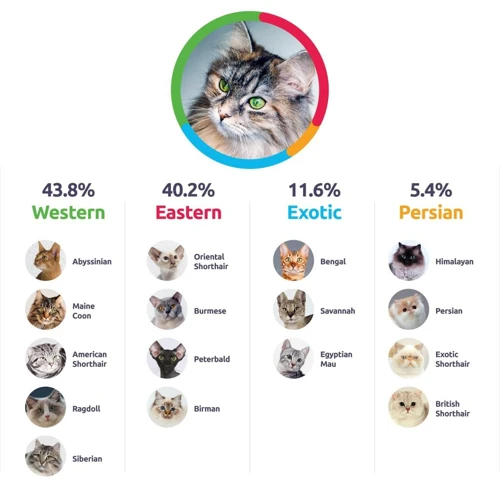
As breeders seek to improve the health and wellbeing of American Wirehairs, genetic testing plays a vital role in achieving this goal. There are different types of genetic tests available, each serving a unique purpose in identifying genetic conditions that can affect wirehairs. Understanding these tests and their uses is crucial when it comes to developing effective breeding programs. In this section, we will explore the various types of genetic tests available and their significance in the breeding of healthy Wirehairs.
Diagnostic Testing
Diagnostic testing is used when a cat is suspected of having a genetic disorder. It typically involves taking a sample of the cat’s DNA and looking for mutations or abnormalities in specific genes. These tests can be very helpful in diagnosing genetic diseases early on, allowing for more effective treatment and management.
There are several different types of diagnostic tests available for American Wirehairs. One common type is a blood test that can identify certain genetic mutations associated with disorders such as polycystic kidney disease (PKD) or hypertrophic cardiomyopathy (HCM). Another type of diagnostic test is a biopsy, which involves taking a sample of tissue from an affected organ or area and examining it for abnormalities.
It’s important to note that diagnostic testing is typically not recommended for healthy cats. However, if there is a suspected genetic disorder, consulting with a veterinarian and performing diagnostic testing can be crucial in identifying and managing the condition.
It’s also important to keep in mind that while diagnostic testing can be helpful, it is not always foolproof. Some genetic disorders may not show up on standard diagnostic tests, and false positives or false negatives can occur. Diagnostic testing should always be used in conjunction with other methods of health screening and careful breeding practices to ensure the healthiest possible offspring.
Carrier Testing
Carrier testing is a type of genetic test that can identify whether an individual is a carrier of a particular genetic disorder. This means the individual does not show any symptoms of the disorder but can pass on the gene to their offspring. American Wirehair breeders should consider carrier testing in their breeding programs, as it can help reduce the prevalence of certain genetic diseases within the breed.
In carrier testing, DNA samples are collected from the individual and analyzed for specific genetic mutations associated with a particular disorder. The results of this test can reveal whether an animal is carrying one or two copies of the gene for the disorder. If an animal is found to be a carrier, breeding it with another carrier or affected animal can result in offspring that inherit both copies of the gene and develop the disorder themselves.
To fully understand the implications of carrier testing, it’s essential to know the consequences of breeding two carriers or an affected animal with a carrier. Here is a table highlighting the possible outcomes when breeding carriers or carriers with affected animals:
| Parent 1 | Parent 2 | Possible Offspring | Chance for Affected Offspring |
|---|---|---|---|
| Normal | Normal | All Normal | 0% Chance |
| Carrier | Normal | 50% Normal 50% Carrier |
25% Chance |
| Carrier | Carrier | 25% Normal 50% Carrier 25% Affected |
50% Chance |
| Carrier | Affected | 50% Carrier 50% Affected |
75% Chance |
| Affected | Affected | All Affected | 100% Chance |
This table illustrates the importance of carrier testing in breeding programs, particularly for identifying carriers and avoiding breeding them with other carriers or affected animals. By carefully selecting breeding pairs for carrier status, breeders can significantly reduce the incidence of genetic disorders in their American Wirehair litters while maintaining the desirable traits of the breed.
It’s worth keeping in mind that not all genetic disorders associated with American Wirehairs have carrier tests available, and even when carrier testing is available, it’s not always foolproof. In such instances, breeders can choose to perform other types of genetic tests or work with a veterinarian to monitor the reproductive health of their breeding animals.
Carrier testing is an excellent tool for breeders to identify carriers of genetic disorders and make informed breeding decisions. By reducing the incidence of genetic disorders in their litters, breeders can improve the health and well-being of American Wirehairs while providing a high-quality, healthy stock of cats for potential owners.
Predictive Genetic Testing
Predictive Genetic Testing is a type of genetic testing that is performed to identify if a cat is prone to develop a specific genetic disorder in their lifetime. This type of testing is beneficial for breeders, as it allows them to make informed decisions when planning breeding programs.
How Predictive Genetic Testing Works
Predictive Genetic Testing works by analyzing a cat’s DNA for specific genetic mutations that are known to cause a particular disease. The test results will indicate whether the cat is positive or negative for the mutation. If the cat is positive for the mutation, it means that they are at high risk of developing the disease in the future.
Benefits of Predictive Genetic Testing for American Wirehairs
Predictive Genetic Testing is especially vital for American Wirehairs, as they are known to be prone to certain genetic disorders, such as Polycystic Kidney Disease (PKD) and Hypertrophic Cardiomyopathy (HCM). By identifying cats that are at high risk of developing these diseases, breeders can avoid breeding them and reduce the transmission of the mutations to future generations.
Predictive Genetic Testing can help avoid health problems in Wirehairs by allowing breeders to identify cats that may develop a particular disease and take preventative measures before the symptoms appear.
What Predictive Genetic Testing Can’t Do
It is essential to note that Predictive Genetic Testing cannot predict exactly when or if a cat will develop a disease, as environmental factors and other genetic mutations could also contribute to disease development. However, it can help breeders make informed decisions when planning breeding programs that could minimize the possibility of producing affected cats.
The Importance of Working with Reputable Breeders
It’s crucial to work with reputable breeders who prioritize genetic testing in their breeding programs. Reputable breeders will have their American Wirehairs tested for genetic mutations associated with specific diseases before using them for breeding and will only breed healthy cats. This approach minimizes the risk of producing cats with genetic disorders.
Predictive Genetic Testing and its Role in American Wirehair Breeding Programs
Predictive Genetic Testing plays a crucial role in American Wirehair breeding programs. By implementing it, breeders can avoid breeding cats with genetic mutations, which will lead to healthier cats in the future. However, implementing genetic testing in breeding programs can be challenging, as it can be expensive and requires knowledge of genetics. Breeders must seek support from reputable professional genetic testing laboratories to ensure that their tests get interpreted and compiled appropriately.
| Benefits of Predictive Genetic Testing for American Wirehairs | Limitations |
|---|---|
| Allows breeders to avoid breeding cats with genetic predispositions to particular diseases | Cannot predict when, or if a cat will develop a disease, as environmental factors could also play a role |
| Prevents the transmission of genetic mutations to future generations | Can be costly and requires knowledge of genetics |
| Identify cats at risk for disease and take preventative measures |
Preventative Genetic Testing
Preventative genetic testing is a form of genetic testing that is done in order to assess an individual’s risk of developing a certain genetic disorder. This type of testing is done before any symptoms are present, and it can be a valuable tool for individuals who want to take a proactive approach to their health.
How Preventative Genetic Testing Works
Preventative genetic testing works by analyzing an individual’s DNA for specific genetic variations that are associated with a certain disorder. If an individual is found to have one of these variations, it means they are at an increased risk of developing the disorder in the future.
Benefits of Preventative Genetic Testing
There are several benefits to undergoing preventative genetic testing. For one, it can help individuals make informed decisions about their healthcare. If a person knows they are at an increased risk for a certain disorder, they may choose to take steps to prevent or manage the condition.
Preventative genetic testing can also be beneficial for families. If a person discovers they have a genetic variation that puts them at risk for a certain disorder, they may encourage family members to also undergo testing to see if they are at risk as well.
Risks of Preventative Genetic Testing
While there are benefits to preventative genetic testing, there are also risks to consider. One of the biggest risks is the possibility of finding out that one has a genetic variation that puts them at risk for a certain disorder. This can cause anxiety and stress, and it can also lead to discrimination in some cases.
Conclusion
Preventative genetic testing can be a valuable tool for individuals who want to take control of their health. While there are risks to consider, the benefits of early detection and prevention can be significant. If you are thinking about undergoing preventative genetic testing, it is important to speak with a healthcare professional to discuss the risks and benefits and to determine if it is the right choice for you.
| Pros | Cons |
|---|---|
| Early detection of genetic disorders | Possible anxiety and stress |
| Opportunity for prevention and management | Possible discrimination or stigmatization |
| Increased knowledge of own genetics | Possible false positives or false negatives |
Implementing Genetic Testing in American Wirehair Breeding Programs
As breeders aim to improve the overall health and genetic makeup of American Wirehairs, implementing genetic testing is crucial. By identifying genetic conditions and predispositions, breeders can create more informed breeding decisions and prevent future health issues. However, implementing genetic testing in breeding programs can present various challenges, and it’s essential to work with reputable breeders to ensure success. Let’s delve deeper into the importance, benefits, and challenges of implementing genetic testing in American Wirehair breeding programs.
The Importance of Working with Reputable Breeders
Working with reputable breeders is crucial when implementing genetic testing in American Wirehair breeding programs. These breeders have a wealth of knowledge and experience, not only in terms of the breed’s genetics but also in terms of ethical breeding practices.
Reputable breeders maintain meticulous breeding records and are transparent about any genetic testing performed on their cats. They also actively participate in breed-specific organizations and adhere to their guidelines for breeding practices.
When seeking a breeder, it is important to do your research and ask for references. The Cat Fanciers’ Association (CFA) recommends working with a breeder who is a member of a breed council, as they have a vested interest in the breed’s health and sustainability.
Working with reputable breeders also ensures that any genetic testing results are accurately interpreted and used to make informed breeding decisions. These breeders understand the complexities of breeding and the importance of maintaining genetic diversity within the American Wirehair breed.
Ultimately, working with reputable breeders helps to maintain the integrity of the breed and prevent genetic disorders from becoming more prevalent. By promoting ethical breeding practices, we can ensure the health and longevity of the American Wirehair breed for generations to come.
Here is a table summarizing the key points of working with reputable breeders:
| Benefits | Considerations |
|---|---|
| Experienced and knowledgeable | Research and ask for references |
| Transparent about genetic testing | Look for membership in breed council or organization |
| Active in breed-specific organizations | Ensure accurate interpretation of genetic testing results |
| Maintains genetic diversity | Promotes ethical breeding practices |
The Benefits of Implementing Genetic Testing in Breeding Programs
Genetic testing has numerous benefits for breeding programs, especially for American Wirehairs. Implementing genetic testing can help breeders in making informed decisions, and can help prevent future health problems. In this section, we’ll delve deeper into the benefits of genetic testing for breeding programs, and how it can improve the breed.
One of the biggest advantages of genetic testing is that it allows breeders to identify any genetic conditions or disorders in their breeding lines. Identifying carriers of genetic conditions can help prevent the condition from being passed down to future generations. In addition, breeders can test potential breeding pairs to determine if there is a risk of inherited disorders in the offspring.
Another benefit of genetic testing is that it can improve the health of the breed overall. By identifying and breeding out carriers of genetic disorders, breeders can work towards a healthier, more genetically diverse breed. This can lead to a longer lifespan, fewer health problems, and a better quality of life for American Wirehairs.
Genetic testing can also prevent heartbreak for new pet owners. By identifying potential health problems in American Wirehairs, breeders can inform potential owners of any health risks or concerns. This can help new pet owners provide the best possible care for their pet, and can prevent unnecessary suffering or heartbreak down the line.
Finally, implementing genetic testing in breeding programs can help increase the popularity of the American Wirehair breed. By improving the overall health of the breed, breeders can attract new owners who are interested in a healthier, more genetically diverse breed.
The benefits of implementing genetic testing in breeding programs are clear. It can help make informed decisions, prevent health problems, improve the breed, and increase popularity. It is important, however, to work with reputable breeders who understand the value of genetic testing and are committed to using it to improve the breed.
| Benefits of Implementing Genetic Testing in Breeding Programs |
|---|
| Identification of carriers of genetic disorders |
| Determination of risk of inherited disorders in offspring |
| Improved health of the breed |
| Prevention of heartbreak for new pet owners |
| Increased popularity of the breed |
The Challenges of Implementing Genetic Testing in Breeding Programs
Implementing genetic testing in breeding programs comes with its own set of challenges. While the benefits of such testing are significant, there are a number of barriers that prevent its widespread adoption. Here are some challenges to consider:
| Challenge | Potential Solution |
|---|---|
| Cost | One major challenge of implementing genetic testing in breeding programs is the expense. Tests can be costly, especially if breeders test large numbers of cats. A potential solution is to collaborate with other breeders or organizations to split testing costs. Some breeders may also choose to pass on some of this cost to the buyer, although this can be difficult for those who want to keep prices affordable for consumers. |
| Access to Testing | Another challenge is access to testing. Not all genetic testing is widely available, and some tests may only be offered by certain labs. If a breeder does not have easy access to testing facilities, it can be difficult to implement genetic testing in their breeding program. In this case, breeders may have to send samples to other labs or coordinate with other breeders who have access to testing. |
| Complexity of Interpretation | Genetic testing can also be complex and difficult to interpret. Some genetic conditions are caused by multiple genes, which can make interpreting test results challenging. Breeders without a background in genetics may struggle to interpret test results accurately and understand the implications for their breeding program. Working with veterinarians or genetics experts can help address this challenge. |
| Limited Genetic Diversity | Breeding programs that rely too heavily on genetic testing may inadvertently reduce genetic diversity in a breed. Limited genetic diversity can lead to inbreeding and the proliferation of genetic disorders that may not be detected through testing. It is important for breeders to balance the benefits of genetic testing with the need for sufficient genetic diversity in their breeding program. |
| Difficulty in Changing Breeding Practices | Finally, implementing genetic testing in breeding programs can be challenging if it requires significant changes to established breeding practices. For example, some breeders may be hesitant to remove a cat from their breeding program if it tests positive for a genetic condition. Others may be reluctant to change their breeding goals or focus on genetic diversity. It can be difficult to change established breeding practices, so breeders must be willing to adapt and set new priorities. |
Implementing genetic testing in breeding programs requires careful consideration of its benefits and challenges. It is important for breeders to be aware of these challenges and work to mitigate them as they incorporate genetic testing into their overall breeding strategies.
Conclusion
In conclusion, genetic testing is an essential tool for breeders of American Wirehairs. By identifying and understanding potential health risks and genetic disorders, breeders can make informed decisions about which cats to breed, and which cats to avoid. This leads to healthier and stronger breeds over time. Additionally, implementing genetic testing within breeding programs can help prevent the spread of genetic disorders by identifying carriers and avoiding breeding them together.
However, implementing genetic testing is not without its challenges. The cost of testing and the limited availability of certain tests can be a barrier for some breeders. Additionally, some breeders may be resistant to change or skeptical of the benefits of genetic testing.
Despite these challenges, the importance of genetic testing in American Wirehair breeding programs cannot be overstated. Working with reputable breeders who prioritize genetic testing and responsible breeding practices is crucial for the long-term health and success of the breed. And ultimately, by using genetic testing to reduce health risks and improve the breed, breeders can create happier and healthier cats for future generations to enjoy.
Frequently Asked Questions
What is genetic testing?
Genetic testing is the process of analyzing an individual’s DNA to look for changes or mutations that could lead to specific diseases or conditions.
What are some genetic disorders that American Wirehairs can inherit?
American Wirehairs can inherit a range of genetic disorders like hypertrophic cardiomyopathy, polycystic kidney disease, and pyruvate kinase deficiency.
What is the benefit of genetic testing for breeders?
Genetic testing offers breeders the ability to make informed decisions and avoid breeding cats that are at risk for certain genetic disorders, ultimately improving the health and longevity of the breed.
Is genetic testing necessary for all American Wirehairs?
No, not all American Wirehairs will require genetic testing. However, it is recommended that breeders perform genetic testing and only breed cats that have been certified clear of any genetic disorders or mutations.
What types of genetic tests are available to breeders?
The types of genetic tests available include diagnostic testing, carrier testing, predictive genetic testing, and preventative genetic testing.
What is diagnostic genetic testing?
Diagnostic genetic testing is used to diagnose a suspected genetic disorder in a cat that is showing signs or symptoms of an inherited condition.
What is carrier genetic testing?
Carrier genetic testing is used to determine if an otherwise healthy cat carries a gene mutation for a specific genetic disorder.
What is predictive genetic testing?
Predictive genetic testing is used to determine if a cat may develop a genetic disorder later in life, even if they show no current symptoms or signs of the condition.
What is preventative genetic testing?
Preventative genetic testing is used to identify if a cat is at risk for developing a genetic disorder in the future, allowing breeders to take steps to prevent the disorder from occurring, such as avoiding certain breeding combinations.
What should breeders consider when implementing genetic testing in their breeding programs?
Breeders should consider the importance of working with reputable breeders, the benefits of implementing genetic testing in breeding programs, and the challenges of implementing genetic testing in breeding programs, such as the cost and availability of tests.

